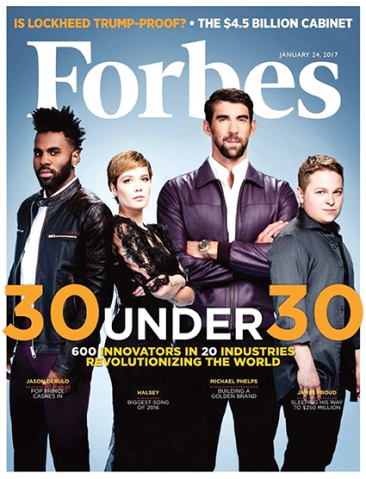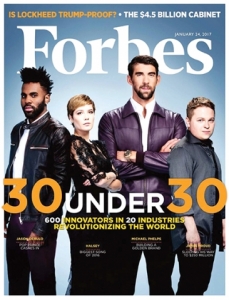Palagashvili’s American Dream Come True
Interview
Twenty-eight-year-old Liya Palagashvili, an assistant professor at New York University, was named among Forbes Magazine’s 30 Under 30 last year, a list of youngsters that the magazine describes as “the brightest young entrepreneurs, breakout talents and change agents”.
Palagashvili was nominated by the George Mason University, where she did her doctoral studies and conducted a number of studies in the fields of economy, law and policy.
We sat down with Palagashvili to discuss her American dream-come-true career.
How did you get the Forbes’ 30 Under 30 nomination.
I was doing my PHD in economics at the George Mason University and after I graduated, I got an email asking if they could recommend and nominate me to Forbes. A couple of months later, they asked me some follow up questions from Forbes and then I heard nothing until they published the list on the website, I had no idea until everyone else did. It came as a total surprise.
What does it mean for you to be on the list?
Forbes has different categories of 30 Under 30. The one I got nominated for was “Law and Policy”. There are other categories – like sports, fashion, and music. To be a Forbes 30 Under 30 means being one of the rising stars and leaders in this particular area.
Unlike US academic circles, little is known about you in Georgia. How did you get here?
My family moved to the United States when I was seven and I’m just very thankful to be here because it provided me lots of different opportunities.
When I was in high school, I took a class on economics. I didn’t know what I wanted to study at college, I wasn’t sure until I took that class and boom! my world just opened. Economics is a beautiful topic, letting you see the world in a completely different way; it’s a new way of thinking about different things that you care about. For me, I really care about why some countries are rich and others are poor. To me, economics is a way to understand these questions.
Many people think of economics as just accounting and financing, but there’s a lot more to it- my love in that regard is policy.
Your field has traditionally been dominated by males. Is it important to have more women in this field, and, generally, in power?
I think I can be a role model to other women who want to enter this field. I also think it’s really important in economics to be able to communicate the different ideas of economics and laws. I think that women are sometimes better able to articulate and explain in a way that makes it easier for others to understand
One of the main focuses of your research is economic freedom. How do you define economic freedom in such a dynamically changing world?
I think one of the biggest things is strong protection of property rights. Economic freedom is the ability to own property, be able to easily start a business- in the US you take for granted that you are free to start your own business, but that’s not the case for a lot of different countries around the world.
You are interested in transitional economies and you say it’s something you’d like to research in future. Any specific topics that attract you in transitional countries like Georgia?
There is this concept in economics that we call ‘informal institution’. There is formal institution which are the legal rules, what the constitution is like, and there is something called informal institution and that captures more of a norm and the customs and culture of the country.
I am particularly interested in that interaction between formal and informal institutions, especially for transition economies. So my particular interest in Georgia is to understand what is going on with informal institutions- are they compatible with western institutions and, if not, how do we get there.
Tell us about your American dream
My family was living in Armenia, and after the collapse of the Soviet Union, my mom’s friend moved to the US. One day she randomly put my mom’s name in the Green Card Lottery and my mom won.
So, we moved to the US and family friends helped sponsor us here. I came from a low-income background. One of the cool things about America is that there are many different groups here and some that are church organizations that will help immigrants.
For my parents, the American dream was moving here and being able to start something. I am a walking representation of the American Dream and I’m very thankful and grateful for that.
What’s next for you, should we expect to see you among Forbes’ Most Influential or Richest women?
I don’t know about richest woman. I really enjoy writing, and I've written many academic papers, but I particularly enjoy writing in newspapers. My dream is to have a column in the Wall Street Journal, and use it as a way to talk about all these different regulations and policies to help people understand more of their impact.
Nana Sajaia, Voice of America Georgian Service











